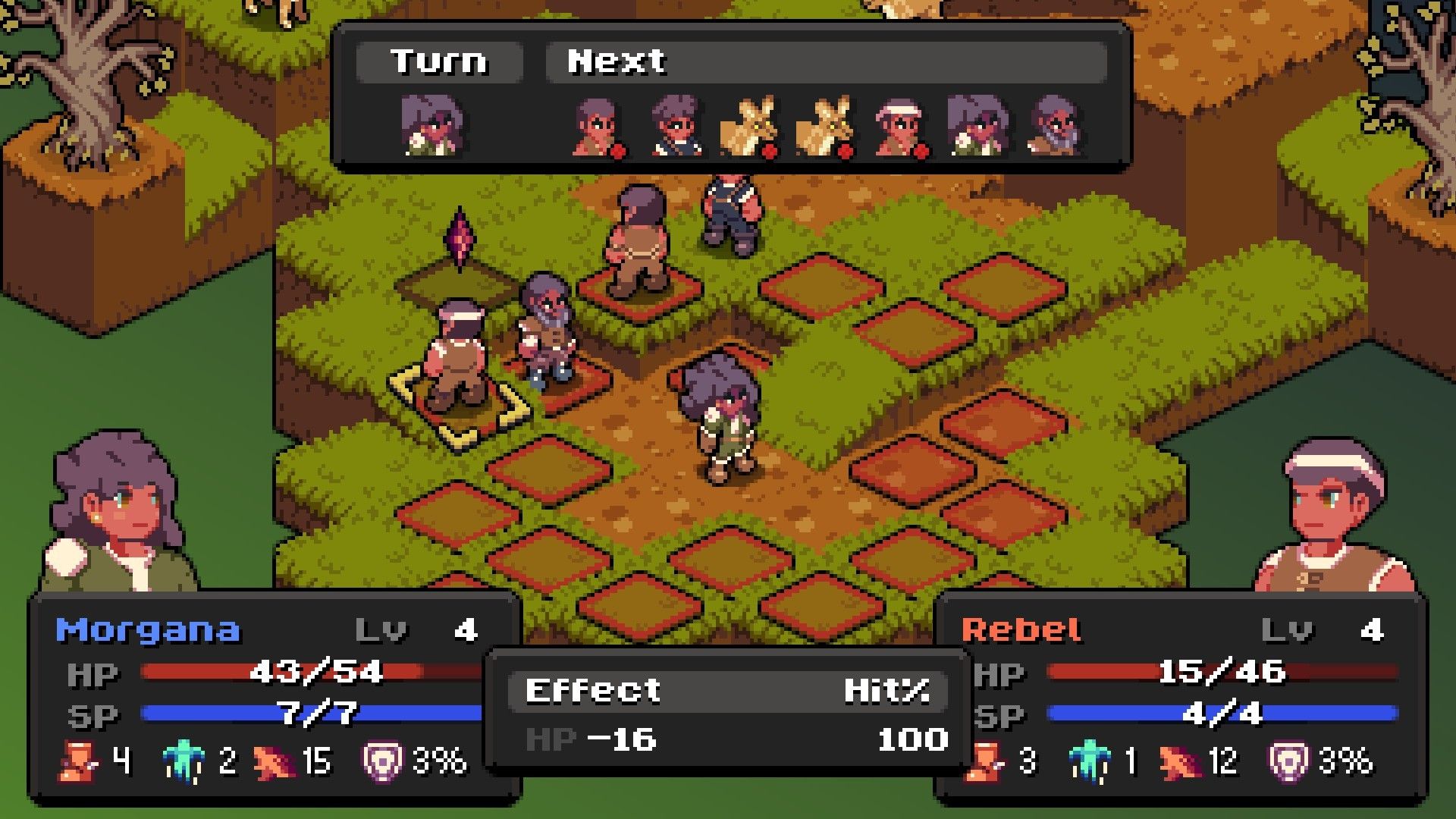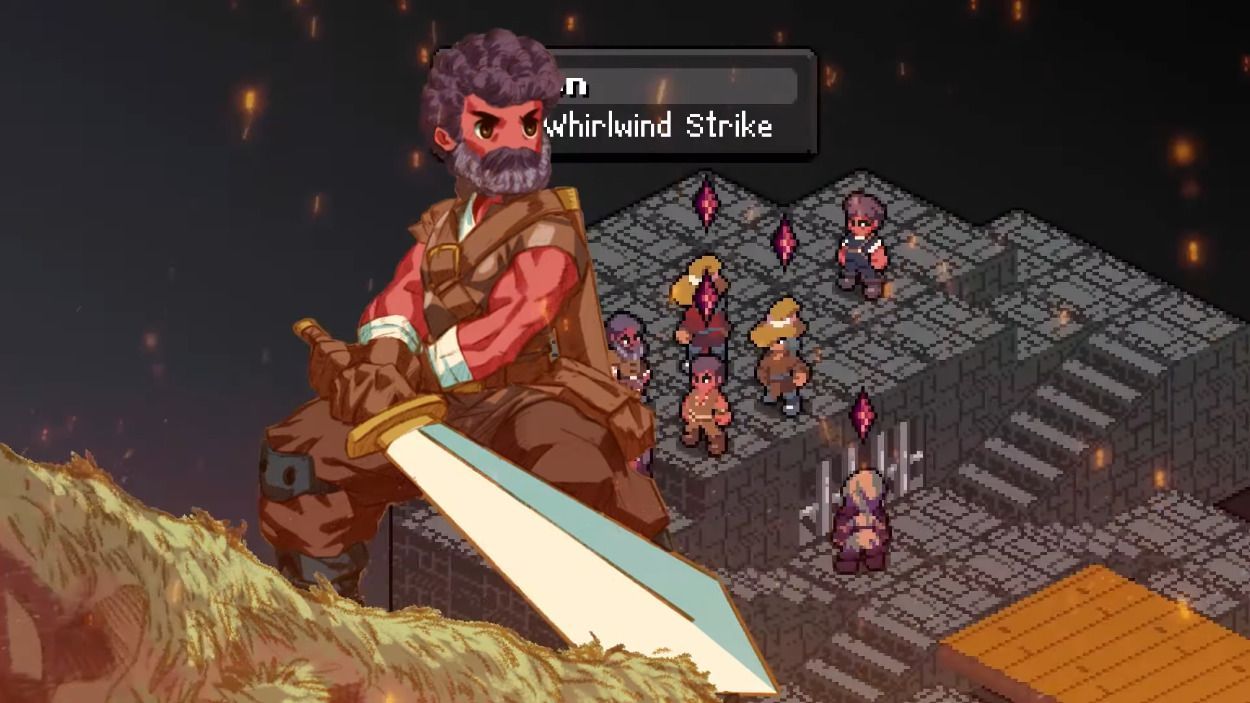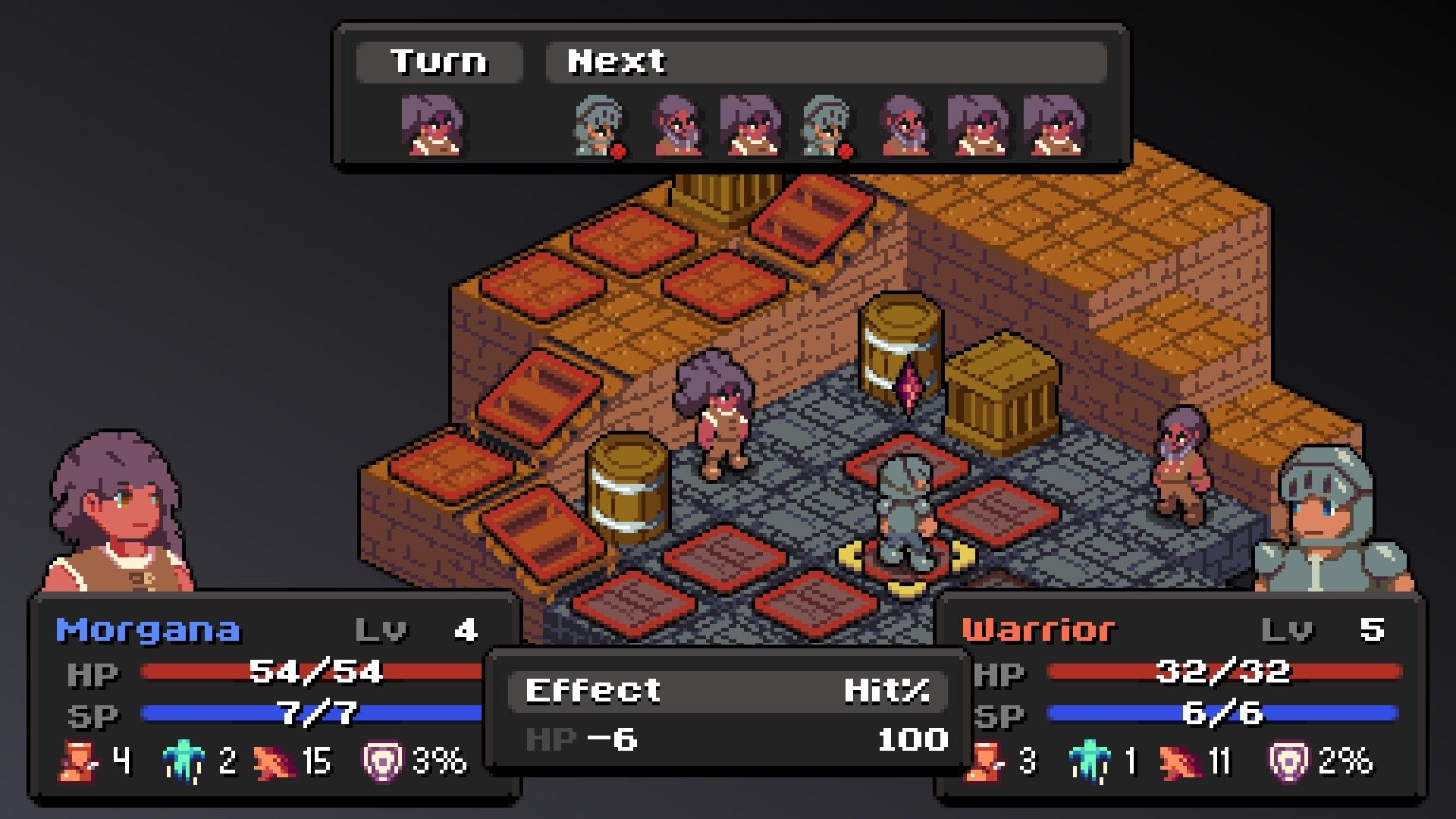Vanaris Tactics: Gateway to the World of TRPGs
Entry-level tactics game makes easy work for veterans but a good intro for newcomers

Final Fantasy Tactics is far and away my favorite video game of all time. I anticipated it enough that I owned a strategy guide before I had a PlayStation to run the game, and I was fascinated enough that I once took a PSP with no other games across the Pacific Ocean so I could play it in China. In the depths of my madness, I even took two hours out of my day to read a detailed breakdown of the math underpinning the game, and it was time well spent.
The shame of being an FFT fan is that for a long time, there were very few games like it, at least in the English-speaking world. While the tactical RPG has been a regular subgenre in Japan for a long time, such titles were rare elsewhere. But in recent years, there's been a resurgence in TRPGs, mostly from established studios but from the indies as well. The goal, naturally, is to be seen as the "spiritual successor" to FFT.
Today's title, Vanaris Tactics, is one of those games. It doesn't exactly succeed, but maybe it'll be worth your while anyway.

As with any vintage RPG, Vanaris Tactics begins with a rebellion, but there's a twist - the rebellion has failed. The story follows a small group from an oppressed minority as they flee across hostile ground, harried by bandits and heretic hunters. There's no grand triumph here - success means surviving long enough to reach a desperate refuge on the other side of a small army.
The story is vaguely reminiscent of the ethnic conflict at the heart of Tactics Ogre, but don't expect this game to be that complex. While the story has a few twists (including a particularly groan-worthy one at the end), most of what you see is what you get. You chart a course, fight through a few levels, then encounter a complication that forces you to find another route.
I suspect that the plot is intentionally loose so as to leave space for future games in the same series. This does result in a few non-sequitur moments that I'll leave as surprises. But really, the story isn't too critical here - TRPGs that aren't Final Fantasy Tactics tend to have fairly unexceptional plots, and this one is at least adequate. It's the gameplay that really matters.

As you might imagine, Vanaris Tactics is built around a stripped-down version of the mechanics of Final Fantasy Tactics, or more precisely, the mechanics in its handheld spin-offs. There's a turn order based on each character's stats, a character is allowed to move and act each turn within limits set by the terrain, and the level ends when no one is standing. If you've played a TRPG in the past few decades, you should have an instant grasp of the gameplay loop.
One very significant difference is that unlike most games of its kind, Vanaris Tactics doesn't have a class system. The characters are more like those in old-school JRPGs, gaining preset skills and abilities as they advance in level. For the TRPG enthusiast, this might come as a disappointment - there won't be any min-maxing or gimmick builds here. Others - those baffled by people who spend hours reading about math in video games, for example - might find it a relief. You won't be spending long periods of time tinkering with your characters between battles, and this can be a plus or a minus depending on your mindset.
Like most TRPGs, the difficulty of Vanaris Tactics will vary depending on one's willingness to grind for experience and money. The game can be finished without grinding at all, which makes for a nice challenge, though a potentially frustrating one, especially due to the complete lack of rez abilities. However, foregoing the grind means missing out on the sidequest-like "bosses" that appear in training locations after a certain number of encounters. These are difficult fights that yield rare items or even unlock new characters. You're missing out on a sizable chunk of gameplay if you ignore them, but clearing each area almost guarantees that the game will pose no challenge until the very end.

For the enthusiast, the biggest downside might be the game's length. Vanaris Tactics can be finished in a day or so - maybe 4-7 hours, depending on whether or not one elects to grind the sidequests, and how much one utilizes the handy (if slightly buggy) speed-up feature. Unfortunately, the lack of classes - and therefore the absence of a party-building mechanic - means that there isn't much incentive to replay the game. There are a few secret characters with novel abilities, but it's still nowhere near as layered as most of its TRPG kin. The offset here is that Vanaris Tactics is very cheap - at just $10, it does at least deliver enough bang for the buck.
In the end, Vanaris Tactics feels like an entry-point game, a way for a neophyte to get used to the core gameplay of the TRPG without burying them in character-building strategy. For people who've mastered FFT, it's going to be a lot less interesting. However, even if you are something of a TRPG snob, it might be worth considering anyway. After all, it's inexpensive and challenging if you play it right. Above all, each successful TRPG makes it more likely others will follow.
Vanaris Tactics is available on PC via Steam and GOG. The above review was based on the Steam version.
